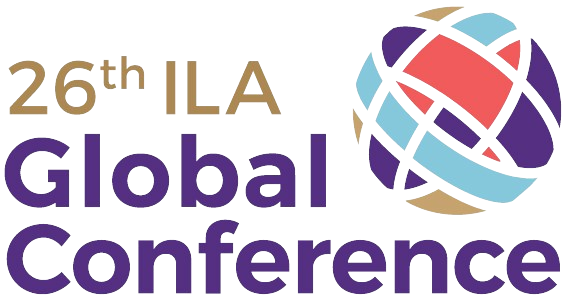Awards at the Global Conference
News! Congratulations to this year's Fredric M. Jablin Doctoral Dissertation Award Winner! Scroll down for details.
Each year the ILA is pleased to honor both those who have made significant lifetime achievements to the study and practice of leadership and those who are just beginning their career in the field of leadership. Awardees all play a special role at the conference, whether it is taking the plenary stage, participating in a spotlighted concurrent session, or being honored at a special event.
Don’t miss this year’s Awards Ceremony on Thursday, 7 November, 4:15 PM at the conference hotel. Then check out the agenda to find special sessions with our award winners throughout the conference.
Congratulations to the 2024 ILA Lifetime Achievement Award Winners!
ILA’s Leadership Legacy Program honors individuals who have made a significant lifetime contribution to the field of leadership through their published works and influential support of leadership knowledge and practice. Each honoree is presented with ILA’s Lifetime Achievement Award and has their work celebrated at our annual global conference.
David V. Day, Ph. D.
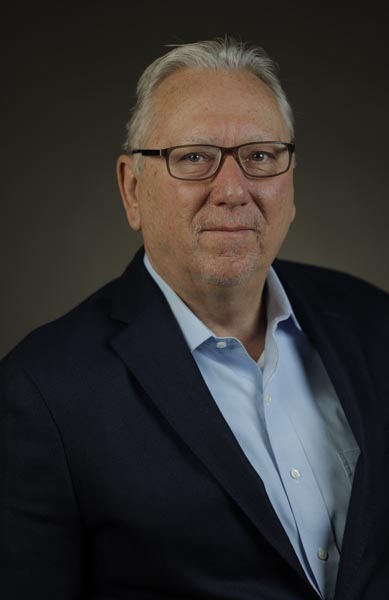
David V. Day holds appointments as Professor of Psychological Science and Academic Director of the Kravis Leadership Institute at Claremont McKenna College. He also is the Steven L. Eggert Professor of Leadership and a George R. Roberts Research Fellow at the College. Day is a Fellow of the American Psychological Association, Association for Psychological Science, International Association of Applied Psychology, and the Society for Industrial and Organizational Psychology. He has published more than 100 peer-reviewed journal articles, books, and book chapters, many pertaining to the core topics of leadership and leadership development. Most recently, he is the author of the Developing Leaders and Leadership: Principles, Practices, and Processes (Palgrave Macmillan / Springer Nature, 2024). In 2010, Day received the Walter F. Ulmer Research Award from the Center for Creative Leadership for outstanding, career-long contributions to applied leadership research.
Complete bio forthcoming.
Gail T. Fairhurst, Ph.D.
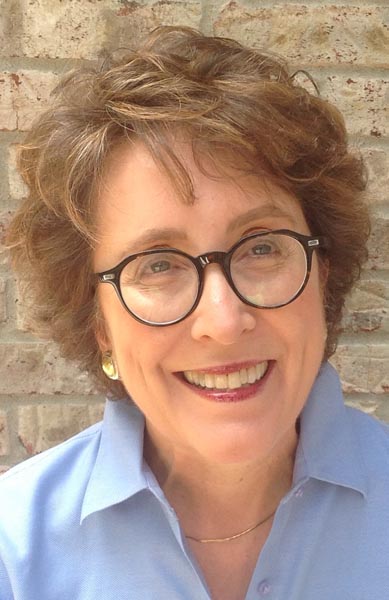
Gail T. Fairhurst is a Distinguished University Research Professor of Organizational Communication at the University of Cincinnati, USA. She specializes in organizational communication processes, including those involving paradox, problem-centered leadership, framing and other discursive processes. She is the author of four books, including Performing Organizational Paradoxes (with L. Putnam), Discursive Leadership: In Conversation with Leadership Psychology, The Power of Framing: Challenging the Language of Leadership, and The Art of Framing: Managing the Language of Leadership (with R. Sarr); and co-editor of the forthcoming, Routledge Handbook of Organizational Leadership Communication (with G. Jian). She has also published over 100 articles and chapters in management and communication journals and books, including Academy of Management Annals, Academy of Management Journal, Academy of Management Review, Organization Science, Organization Studies, Human Relations, Communication Monographs, Human Communication Research, and Management Communication Quarterly. She is a Fellow of the International Communication Association, Distinguished Scholar of the National Communication Association, and Fulbright Scholar.
Read Complete Bio
Gail T. Fairhurst is a Distinguished University Research Professor of Organizational Communication at the University of Cincinnati, USA. She specializes in organizational communication processes, including those involving paradox, problem-centered leadership, framing and other discursive processes. She is the author of four books, including Performing Organizational Paradoxes (with L. Putnam), Discursive Leadership: In Conversation with Leadership Psychology, The Power of Framing: Challenging the Language of Leadership, and The Art of Framing: Managing the Language of Leadership (with R. Sarr); and co-editor of the forthcoming, Routledge Handbook of Organizational Leadership Communication (with G. Jian).
She has also published over 100 articles and chapters in management and communication journals and books, including Academy of Management Annals, Academy of Management Journal, Academy of Management Review, Organization Science, Organization Studies, Human Relations, Communication Monographs, Human Communication Research, Journal of Applied Communication Research, and Management Communication Quarterly. She is a Fellow of the International Communication Association, Distinguished Scholar of the National Communication Association, and Fulbright Scholar.
Dr. Fairhurst lectures and conducts workshops on such topics as organizational communication, organizational change, organizational culture, organizational paradox, and leadership communication processes. Most often, she is called upon to discuss her 2011 and 1996 books (The Power of Framing; The Art of Framing) regarding how leaders and managers can be taught to use language more strategically to manage change and other important aspects of their work environment.
Dr. Fairhurst has done workshops, executive coaching, and/or keynotes for such organizations as: Reliability First, Merrill Lynch, U.S. Environmental Protection Agency, Alkermes Pharmaceuticals, McDonald’s Corporation, Boeing Corporation, Procter & Gamble, General Electric, U.S. Air Force, Kroger, Cincinnati Bell, Children’s Hospital of Cincinnati, State Farm Insurance, Fluor Daniel Corporation, Lenders’ Services, The Optimum Group, Flojo Industries, Institute of Supply Management, Special Libraries Association, Southwest Ohio Human Resource Association, and more.
Robert C. Liden, Ph.D.

Robert C. Liden (Ph.D., University of Cincinnati) is Professor of Management at the University of Illinois Chicago (UIC), where he is also Coordinator of the OB/HR Doctoral Program. He is known for his research on servant leadership and leader-member exchange, which involves the quality of relationships between leaders and followers. Servant leadership refers to leaders’ behaviors that place the needs of their followers before their own needs and center their effort on helping followers grow to reach their maximum potential and achieve optimal organizational and career success. A servant leader pays close attention to followers’ personal concerns and career growth, empowers them, prioritizes their work needs, interacts within ethical boundaries, and cares about creating value for the local community. His 2008 article in the Leadership Quarterly (Liden, Wayne, Zhao, & Henderson), which introduced what has become the most frequently used servant leadership measure was awarded the 2018 Leadership Quarterly Decennial Article Influence Award for the most influential paper published in Leadership Quarterly during 2008. In 2015 he was named the Academy of Management’s Network of Leadership Scholars Eminent Leadership Scholar Award. He has over 100 publications, which have been cited over 75,000 times according to Google Scholar.
Read Complete Bio
Robert C. Liden (Ph.D., University of Cincinnati) is Professor of Management at the University of Illinois Chicago (UIC), where he is also the coordinator for OB/HR Doctoral Program. He has served as a visiting professor at the Chinese University of Hong Kong, the Université Toulouse 1, France, the Université Paris-Dauphine, France, and the University of Melbourne, Australia. He has made invited research presentations in Australia, Belgium, Canada, China, France, Germany, Hong Kong, Japan, the Netherlands, New Zealand, Singapore, Taiwan, Turkey (virtual), the U.K., and the U.S.
His research focuses on servant leadership and leader-member exchange (LMX). He has over 100 publications, which have been cited over 75,000 times according to Google Scholar. Professor Liden is a fellow of both the Academy of Management and the Society for Industrial and Organizational Psychology (SIOP).
He won awards for the best article published in the Academy of Management Journal during 2001 (with Scott Seibert and Maria Kraimer); the best organizational behavior article published in any journal during 2005 (with Ray Sparrowe) by the Academy of Management; in 2017 he won the award for the best article published in the Journal of Management during 2012 (with Jim Dulebohn, Bill Bommer, Robyn Brouer, and Jerry Ferris); and the 2018 Leadership Quarterly Decennial Article Influence Award for the best article published in Leadership Quarterly during 2008 (with Sandy Wayne, Hao Zhao, and David Henderson).
In 2014 he won the Thomas A. Mahoney Mentoring Award for work with doctoral students sponsored by the HR Division of the Academy of Management, and in 2015 he won the Academy of Management’s Network of Leadership Scholars “Eminent Leadership Scholar Award”. In 2016 Professor Liden was named a University of Illinois “University Scholar,” the first UIC Management professor to receive this honor since 1986.
Professor Liden is currently serving on the Journal of Applied Psychology, Journal of Management, Journal of Management Scientific Reports, and. Personnel Psychology editorial review boards. He has served as a trustee on the Greenleaf Center for Servant Leadership board since 2021. Professor Liden was the 1999 Program Chair and 2000-01 Division Chair for the Academy of Management’s Organizational Behavior Division.
Congratulations to the 2024 Kenneth E. Clark Student Research Award Winner!
Karryna Madison, Ph.D.
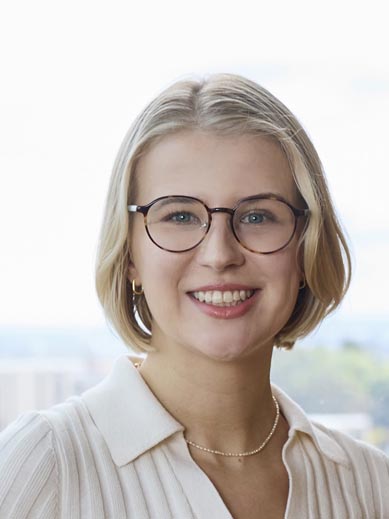
“Rewrite the Recipe: A Gendered Examination of Social Exchange Theory in Leadership Research.”
This paper examines leadership research that uses social exchange theory, which suggests followers reciprocate leaders’ behaviors. Traditionally, this theory is applied without considering how gender impacts leader-follower relationships. By critically analyzing past research through a gendered lens, this review highlights the importance of incorporating gender perspectives. It argues that ignoring gender perpetuates outdated norms and stereotypes, which can marginalize women and reinforce biases. To advance the literature, this review outlines future research directions that integrate different perspectives of gender to better understand how gender influences social exchange relationships in leadership.
Dr. Karryna Madison is an Assistant Professor in Leadership from the Australian National University. Her research examines how gender interacts with communal approaches to leadership. Her research has been featured in leading peer-reviewed management journals, including The Leadership Quarterly and Journal of Business Research. Her research also received a Best Paper Nomination in the Diversity, Equity, and Inclusion Division at the Academy of Management (2023 and 2024) and the Greenleaf Scholars Award in 2021.
Congratulations to the 2024 Fredric M. Jablin Doctoral Dissertation Award Winner!
The ILA is pleased to partner with the Jepson School of Leadership Studies at the University of Richmond on the Fredric M. Jablin Doctoral Dissertation Award. This award is given annually to a scholar whose doctoral dissertation research, while on any topic and from any discipline, demonstrates substantial insights and implications for the study of leadership. The award was established to honor and celebrate the life of Dr. Fredric M. Jablin (1952-2004). Recipients are honored during the conference and invited to give a talk on their work at ILA’s global conference. To view all of our Jablin Dissertation Award winners, visit ILA’s website.
Keyhan Shams, Ph.D.
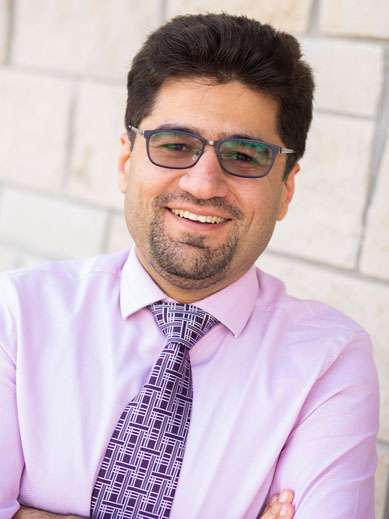
Dissertation Title: “Bridging the Gap between Learning and Practicing Leadership: Developing New Instruments to Evaluate Leadership & Adaptation“
ILA Presentation Title: “Adaptive Leadership: New Evaluation Instruments and the Decision-Making Process.”
In this presentation, as part of his dissertation, Keyhan Shams presents empirical quantitative and qualitative evidence exploring the theoretical connections between Stanovich’s tripartite model of reasoning and Heifetz’s adaptive leadership framework. He introduces newly validated instruments to measure adaptive leadership self-awareness, self-efficacy, and behavior. Keyhan demonstrates that awareness of defaults, role and purpose, as well as surfacing conflict, are among key components of adaptive leadership self-awareness and behavior. Drawing from the qualitative portion of his dissertation, he also outlines the decision-making process individuals may use to exercise leadership as an activity. His qualitative concept map illustrates that this decision-making process is emotionally and cognitively burdensome. Finally, he provides recommendations for adaptive leadership researchers, educators, and coaches to enhance the impact of their developmental efforts.
Dr. Keyhan Shams is a research assistant professor at the Staley School of Leadership, Kansas State University. He holds a bachelor’s degree in urban planning and design from the University of Tehran and a master’s degree in urban and regional planning from Iran’s Shahid Beheshti University. Recently, he earned his PhD in leadership communication from Kansas State University.
Keyhan lived in Iran for over 30 years, starting his career as an intern and later a consultant for the United Nations Human Settlements Program in Iran (UN-Habitat). He also spent three years as a researcher and leadership coach in Iranian slums and informal settlements. His interest in evaluating the impact of leadership development and community-based efforts led him to pursue his PhD in the US. As a graduate research assistant during his PhD, he worked with Third Floor Research, a joint initiative between the Staley School of Leadership and the Kansas Leadership Center, designing and managing impact assessment projects. His latest co-authored publication, “Unveiling the Impact: A Mixed-Method Inquiry into the Impact of Leadership Development Programs,” was recently published in the Journal of Leadership Education. Shams’ dissertation was entitled, “Bridging the Gap Between Learning & Practicing Leadership: Developing New Instruments to Evaluate Leadership & Adaptation.” In this research, Shams developed four new instruments to measure people’s leadership competencies and mindsets from an adaptive leadership perspective. He also outlines people’s decision-making process to exercise leadership.
Informed by his urban planning background, Keyhan also researches the emergence of leadership in the public sphere. Combining his urban and leadership studies, he has been observing and experiencing Iranian social movements over the past two decades. Keyhan serves on the core leadership team of the International Leadership Association’s (ILA) Public Leadership Community. His ideas on public leadership have been presented at ILA conferences and published in recent ILA books, Inclusive Leadership and the forthcoming, Women Embodied Leaders.
